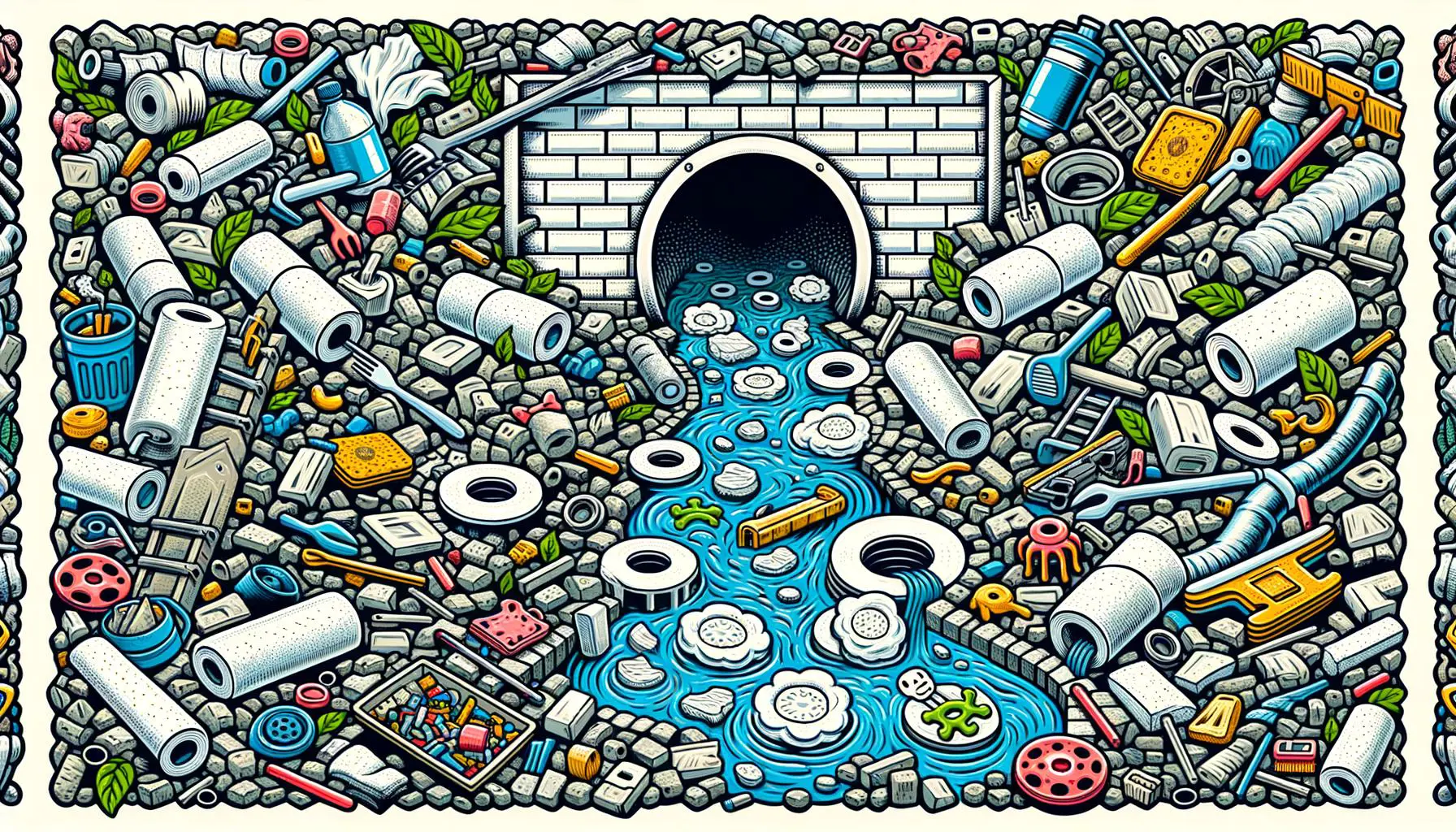The Menace of 'Flushable' Wipes to Our Sewer Systems
Owatonna's sewer systems are facing severe blockages from non-flushable 'flushable' wipes. What can we do?

The Rising Threat of 'Flushable' Wipes
Sanitary sewer systems across Owatonna are facing significant challenges due to a growing problem: the proliferation of so-called 'flushable' wipes. Despite their name, these items are far from suitable for flushing, often leading to severe blockages in both private and public sewer systems.
Problem Overview
In an update from the Public Works Department on July 12, 2024, it was highlighted that wipes, cloths, and rags are increasingly clogging our sanitary sewers. Many of these products are labeled as 'flushable,' but while they may pass through your toilet, they rarely disintegrate further down the line, causing backups and equipment failures.
Items Causing Issues
Specific items that often cause these blockages include:
- Baby wipes
- Cat litter
- Diapers and diaper liners
- Doggy doo bags
- Feminine hygiene products
- Pre-moistened wipes
- Toilet seat covers
- Various bathroom cleaning wipes and brushes
These items are not designed to break down like toilet paper and should not be flushed. Instead, they contribute to costly repairs and maintenance for both homeowners and municipal utilities.
Impact on Infrastructure
When these products make their way into the sewer system, they can block private sewer laterals, which are the pipes that connect individual properties to the main public sewer line. These blockages can cause sewage to back up into homes, leading to unpleasant and expensive damages.
On a larger scale, these 'flushable' products also wreak havoc on public sewer mains and municipal pumps. Cities like Owatonna invest substantial funds to clear these blockages and repair damaged equipment, which could be better spent on system improvements rather than reactive maintenance.
How to Help
To prevent these issues, residents should be cautious about what they flush. If an item isn’t toilet paper, it’s generally safer to assume it shouldn’t be flushed. The Minnesota Pollution Control Agency’s website provides additional guidelines and information on maintaining a healthy sewer system.
By being mindful of what gets flushed, we can all play a part in ensuring the reliability and efficiency of Owatonna's sanitary sewer systems, saving time, money, and reducing environmental impact.

Randy Thompson
Randy Thompson is a generative journalist specializing in local news coverage.


